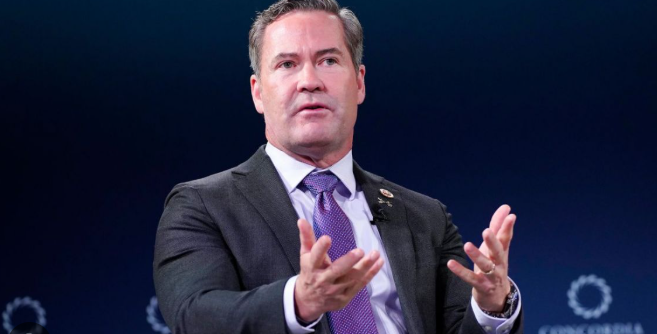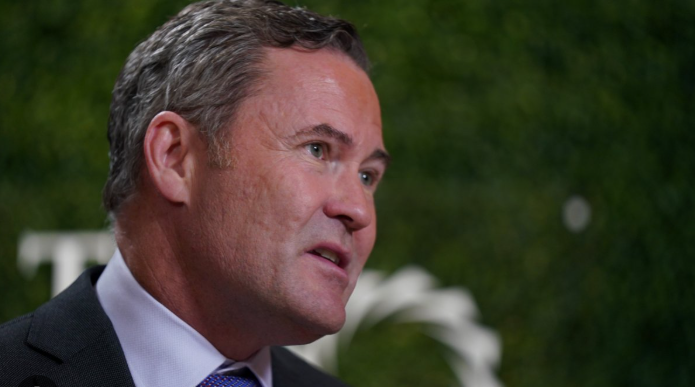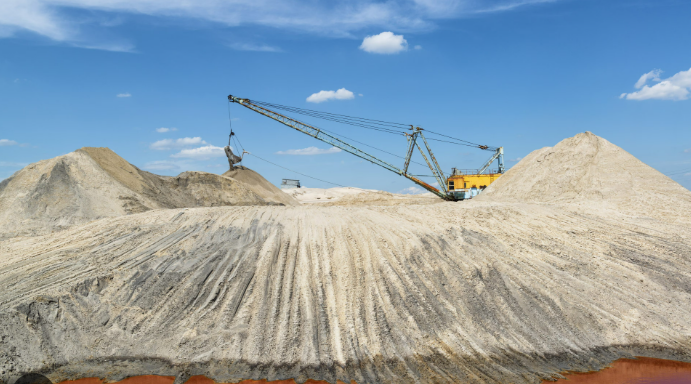WASHINGTON (Reuters) – The Trump administration is set to reduce the number of federally regulated waterways protected under the U.S. Clean Water Act in a bid to help the energy and agriculture industries, according to a media report on Friday.
FILE PHOTO: U.S. President Donald Trump pauses while delivering remarks at the Project Safe Neighborhoods National Conference in Kansas City, Missouri, U.S., December 7, 2018. REUTERS/Jonathan Ernst
The Environmental Protection Agency will propose altering the definition of what qualifies as “Waters of the United States” under the regulation to remove streams that flow only after rain and wetlands unconnected to larger waterways, news outlet E&E reported, citing a document.
The change could open the door to added pollution in some water bodies from industries including oil drilling, mining, and agriculture by removing them from federal oversight.
The E&E report said the EPA would make the proposal on Tuesday. An EPA official was not immediately available for comment.
Since taking office in January 2017, President Donald Trump has rolled back Obama-era environmental and climate protections to maximize production of domestic fossil fuels, including crude oil.
On Thursday, for example, the administration proposed weakening two other Obama administration environmental rules to help the energy industry – including one that had blocked drilling and mining in a bird habitat and another that required new coal-fired power plants to capture carbon emissions.
The new actions follow an executive order by Trump in February 2017 that had directed the EPA to work toward rescinding the so-called WOTUS rule defining federal waterways under the Clean Water Act, issued under President Barack Obama in 2015.
The rule had pleased environmentalists, but stirred anger in the agriculture and energy industries, which argued it gave regulators too much authority and hampered development.
The EPA and other agencies have been working to reinstate the language of the rule before it was changed.
Trump and the EPA’s former administrator, Scott Pruitt, had said the rule marked an overreach by including streams that are shallow, narrow, or sometimes completely dry.
Reporting by Humeyra Pamuk; editing by Jonathan Oatis






Leave a Reply